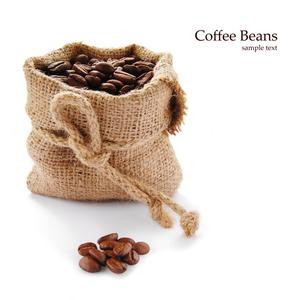What are the common types of coffee in daily life?
What kinds of coffee are common in our daily life? The summary is divided into the following categories, for everyone to introduce!

Instant Coffee
Including powdered, granular and recent low-temperature freezing type. Such as Nestl é (in fact, most of the earliest people who come into contact with coffee start from instant), brewing is simple and can be mixed with hot water. However, it lacks the richness and variation of taste; it has been reported that instant coffee contains more carcinogens.
Single coffee (black coffee)
Black coffee usually refers to the single coffee made by the filter method, and in a broader sense, all pure coffee without other ingredients can be called black coffee. It is the black one, divided into Blue Mountain, Brazil, Mantenin, etc., usually brewed in a mocha coffee pot (made of stainless steel or aluminum, divided into two parts) or a glass siphon coffee pot (upper and lower glass balls). Usually only a relatively high-quality single variety of coffee is suitable for making single (single variety) coffee.
Espresso Italian espresso
The use of professional larger espresso coffee machine production, strong flavor, generally installed in a special thick small cup, the amount is very small, concentrated is the essence! It's equivalent to Kungfu Tea in coffee. A good espresso has a thick layer of creamy substance called crema Klima, and the best has a tan ointment leopard print, which belongs to the essence of coffee essence.
Fancy Coffee
It is generally made on the basis of espresso espresso, with milk foam, syrup, cinnamon and so on, such as cappuccino, milk (latte), caramel macchiato and so on.
Ask, in fact, it means to communicate and consult. Only professional sellers sell high-quality products, and coffee beans are the same. By asking, we can not only test the seller's professionalism, but also fully convey our needs to the seller. in order to choose the coffee beans that best suit their tastes and utensils. When buying coffee beans, we should keep one thing in mind: expensive may not be expensive, but cheap must be cheap, try not to simply pursue fame and brand, suitable for their own taste is the right way.
When asking questions, we can start with the following points:
Ask about the origin
Just like red wine, the origin of coffee beans is also very important, and there is a rule that the higher the quality of coffee beans, the finer the origin. General general Colombian coffee, Brazilian coffee, that quality must also be general, high-quality coffee is bound to be detailed to the country, producing areas, estates, and even professional sellers will tell you which year the raw beans are.
Ask about the variety
If we buy blended coffee, it may be because of trade secrets, and sellers are generally reluctant to disclose the specific origin and proportion, then you can ask about the varieties of coffee beans. For example, the respective proportions of Arabica coffee and Robbica coffee, although in general, the higher the proportion of Arabica coffee, the more expensive it will be. But on the other hand, it does not mean that there is a problem with the quality of the blended coffee, the right amount of high-quality Robbins coffee is very helpful to improve the mellowness of the coffee. In addition, if it is a single cup of coffee, unless it is a special professional or special hype sellers, will tell you something such as Tibica, of course, this situation is rare.
Ask about taste and baking degree
Taste is not only related to the variety of coffee beans, but also related to the baking degree, so if you can't see the color of coffee beans directly in the bag, you must know the roasting degree of coffee beans. Generally speaking, the deeper the roasting, the more bitter, but the personality of coffee will not be obliterated. The lighter it is, the more sour it will be, and it may be a little exciting.
Ask about the degree of grinding
Each vessel has its own degree of grinding, so if you buy a ground coffee powder or ask the seller to grind it on your behalf, be sure to tell the other person what kind of vessel extraction you are, so that you can grind the coffee powder to the appropriate thickness.
Through careful communication, you can not only learn a lot about coffee, but also ensure that you choose really high-quality and suitable coffee beans. At the same time, I think this kind of communication process is also very interesting.
Important Notice :
前街咖啡 FrontStreet Coffee has moved to new addredd:
FrontStreet Coffee Address: 315,Donghua East Road,GuangZhou
Tel:020 38364473
- Prev

Does coffee have the effect of relieving fatigue?
Can coffee relieve fatigue? To eliminate fatigue, 1. Supplementary nutrition; 2. Rest and sleep; 3. Boost metabolism. Coffee has a third function, which can promote the function of the heart, smooth blood circulation, speed up the supply of oxygen and nutrients to the whole body, and on the other hand, promote the liver to process waste faster and expel it from the kidneys. This function of promoting metabolism can be effectively eliminated.
- Next

Why coffee is one of America's most popular drinks
Over the years, I have written extensively about the social and environmental impact of coffee, one of the world's most popular drinks and one of the world's most traded commodities. I'm currently writing a book about coffee (contact me if you're interested), but I've been hesitant: I don't know how many coffee consumers really want to know.
Related
- Beginners will see the "Coffee pull flower" guide!
- What is the difference between ice blog purified milk and ordinary milk coffee?
- Why is the Philippines the largest producer of crops in Liberia?
- For coffee extraction, should the fine powder be retained?
- How does extracted espresso fill pressed powder? How much strength does it take to press the powder?
- How to make jasmine cold extract coffee? Is the jasmine + latte good?
- Will this little toy really make the coffee taste better? How does Lily Drip affect coffee extraction?
- Will the action of slapping the filter cup also affect coffee extraction?
- What's the difference between powder-to-water ratio and powder-to-liquid ratio?
- What is the Ethiopian local species? What does it have to do with Heirloom native species?

